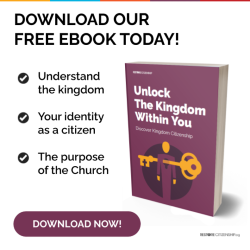The way we search for information on google can be likened to the way society searches for prospective leaders at election time.
Continue to listen or read this article below.
As a digital communications professional, it’s part of my daily routine to think about what is the best way of communicating and publishing information on the web. However, getting content published online is only the first step. Your information still needs to be optimised so it can be found by your readers via search engines such as google.
With over 60 trillion web pages indexed so far. Two trillion searches taking place annually working out at approximately 2.3 million searches per second Google has become the world’s leading search engine.
Digital experts will tell you that getting your pages ranked as high as possible on google is essential to getting noticed however statistics show us that the highest level of traffic on google from users take place on the first search results page dropping by over half for page two and three.
Basically, if you’re not listed on the first search results page then you’re not getting noticed.
So you ask what has this got to do with the elections?
I wasn't particularly shocked that the American people were left with having to choose between Hillary or Trump and weren't surprised that Donald Trump had managed to become the 45th president.
I think the way we search for information on google can be likened to the way society searches for prospective leaders at election time
Just like google search, what we look for, prioritise and determine to act on reflects the sum of what we value.
Just as google presents us with keywords, titles, summaries and adverts, so to the elections carry similar traits which we can either choose to accept or investigate further for something more meaningful and substantial.
What keywords do you search with?
Terrorism, immigration, jobs and the economy! The primary goal of every form of media is to get the public singing along to the same tune as the orchestra.
Keywords become the very notes upon which the masses are played
Like Google, elections can become dominated by the political keywords which polarise opinion and sway the direction of conversation amongst the masses.
An example of this was the sensationalism which drove the political discourse in America. If the media wanted to know about Trump’s WALL?
The public tuned in to ask who would build it and what it would be made of? Seriously! Forgetting questions about why the war on drugs POLICY had failed?
The impact that such a policy has had on communities and the incarcerated.
No! That would involve asking too many questions and looking below the fold of our search results.
Which headlines do you follow?
The keywords you search with determines the headlines and summaries you choose, informing you on the subject matter upon which you based your opinions.
I recently spoke with a local mini cab driver who was extremely unhappy that Trump had won. He reiterated how nice and well-spoken he thought Obama was and moaned about the American people’s decision.Having listened for a few minutes I asked the man which specific Obama policies he supported.
Having listened for a few minutes I asked the man which specific Obama policies he supported. Needless to say, the silence was enough and the man had to confess he didn't know of Obama's specific policies, but still continued to reiterate he liked his personality.
Needless to say, the silence was enough and the man had to confess he didn't know of Obama's specific policies, but still continued to reiterate he liked his personality.
However sincere and well-meaning this man was, his opinions had been formed by the headlines and summaries of popular opinion, not by the facts.
Do you believe that just because information is listed it must be an authentic source?
Google is a fantastic tool for giving us access to information on the web. However just because the information is listed and even meets the criteria of our search that doesn’t mean it’s an authentic source.
The UK public suffered from this during the In/Out referendum. Both campaigning groups brought out their top batsman to argue their position, however, both groups failed to provide sufficient credible information for the public to decide.
The defining trait of the campaigners was repeating their talking points, even if the points were found to be untrue by the media or independent experts. Despite this rhetoric, we continue to look to them as an authentic source of information.
So what does the bible say about choosing leadership?
The book of Timothy chapter 3 lists the criteria which we should use to access the quality of candidates presented to us. If we used these qualities and competencies we would be forced to scrutinize candidates more thoroughly.
A leader must demonstrate:
- Integrity: free from blame.
- Committed: faithful to his wife.
- Temperate: not given to extremes.
- Sober minded: clear and with clarity
- Good behaviour: orderly
- Hospitable: open and transparent
- Knowledgeable: able to teach
- Free from addiction: not get intoxicated.
- Non-violent: not push people around.
- Astute: not open to bribery.
- Gentle: caring and considerate
- Not quarrelsome: not argumentative
- Householder: good steward of his household.
- Mature: not a novice
Before the next upcoming elections ask yourself? If google was a guy? how do you think he would respond to your questions concerning choosing the next leader or party for the country. Otherwise, check out an earlier article to vote or not to vote is that the question for more information.
For king and for country...





